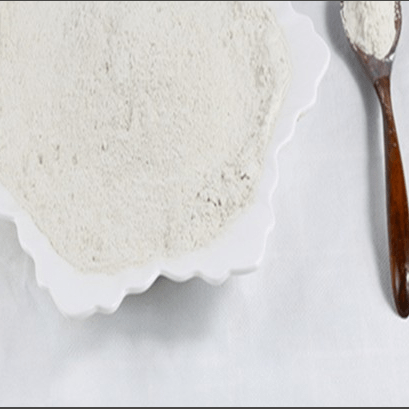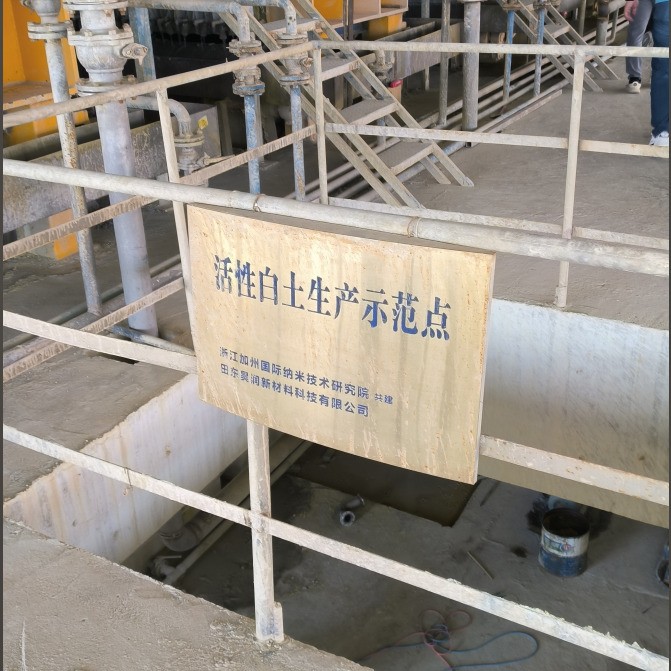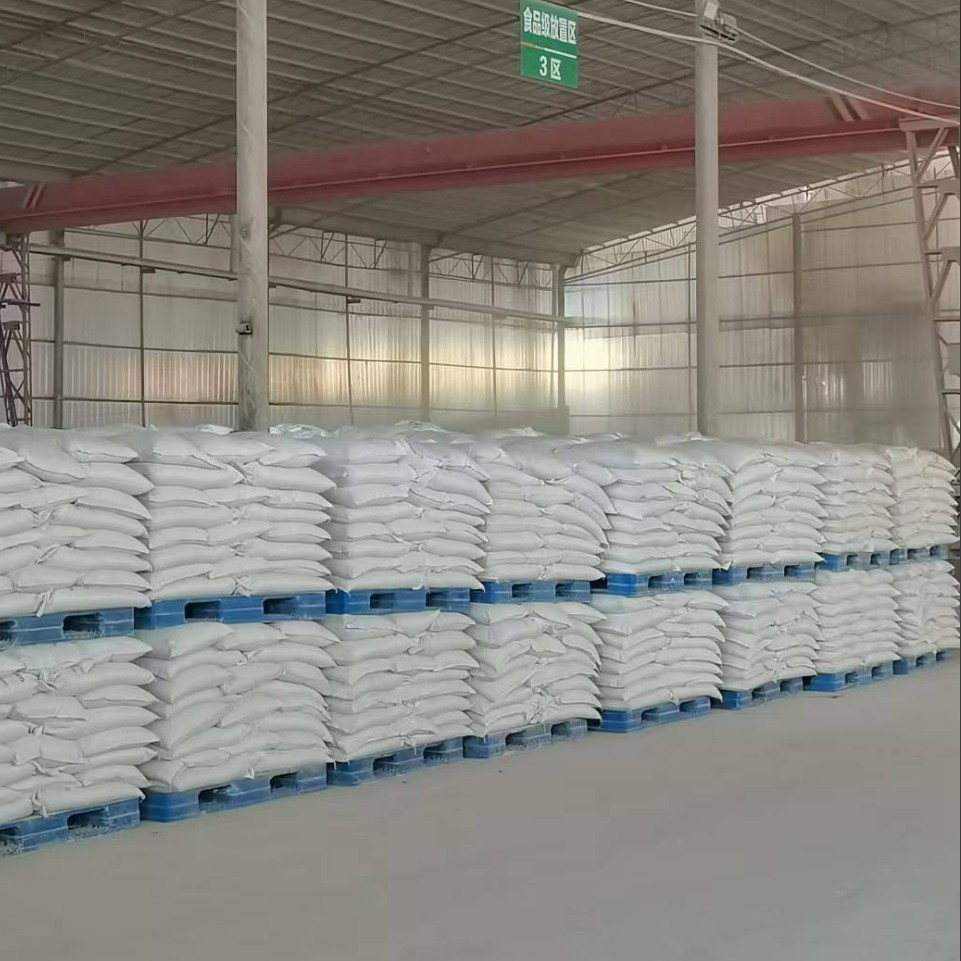Activated Clay Bleaching Earth Supplier Bentonite Factory
Activated Bleaching Clay Factory Edible Oil Bleaching Earth, Activated Bleaching Earth supplier with integrated qualifications, mining rights, mines, production facilities and research institutions.
Right Activated Clay Bleaching Earth Experts Solve Your Demand Challenges
We specialize in providing expert Premium Activated Clay Bleaching Earth (H2Al2(SiO3)4-nH2O) solutions tailored to your unique situation. With trusted, certified, and experienced professionals, we focus on innovation, maximize savings, and ensure compliance.
Activated Clay Bleaching Earth Supplier Bentonite Factory
Activated Clay Bleaching Earth (Cas No.:70131-50-9) Activated Bleaching Earth,Bleaching Clay Qualified, Trusted, Certified Original Supplier.
Activated Clay & Bentonite Brief Introduction
Activated clay is made of clay (mainly Bentonite) as raw materials, treated by inorganic acidification or salt or other methods, and then rinsed and dried by water, the adsorbent is milky white powder, odorless, tasteless, non-toxic, strong adsorption performance, can absorb colored substances, organic substances. Widely used in mineral oil, animal and vegetable oil, wax and organic liquid decolorization refining. It can also be used as moisture desiccant, internal drug alkali antidote, vitamin A, B adsorbent, lubricating oil coincidence contact agent, gasoline vapor phase fine preparation, etc., and can also be used as medium temperature polymerization catalyst, high temperature polymerization agent and raw material for manufacturing granular clay,
Chemical name: Active bleaching earth
Alias: White earth
Cas No.: 70131-50-9
EINECS No.: 274-324-8
Chemical Formula: H2Al2(SiO3)4-nH2O
Activated clay is widely used for decolorization, refining and bleaching of edible oils and fats. The requirement for products is essential in Asia Pacific countries such as Indonesia, Malaysia and India. Favorable government management and policies in these countries have contributed to the market growth. The increase in acreage and yield of oil crops and technological advances in the production process are important drivers for the industry. In addition, the expanding demand for biofuels sourced from vegetable oils is also one of the factors
leading to the demand for activated bleach clay, especially in developed countries. Increasing adoption of healthy eating habits and consumption of low fat oils are expected to drive the market in North America and Europe. In addition, manufacturers are taking advantage of advanced bleaching processes to provide consumers with more reliable quality of cooking oils, which is attributed to the personal concern for the quality of these oils. These factors are expected to drive the growth of the global activated bleach market.
The activated clay market is classified as attapulgite, bentonite, sepiolite, and others by type. On the basis of material type, the attapulgite occupies the largest share of the activated clay market, and adsorbent grade attapulgite is widely used as a pesticide carrier, oil, clarification agent for oil spill absorbent, filter aid, soil amendment, and toxin binder for animals and humans. Based on application, the activated clay market is segmented into: edible oils, mineral oils and lubricants, chemicals, cosmetics and others. On the basis of application, the edible oil is expected to occupy the largest share of the overall market share due to the increase in global vegetable oil production and consumption. The surging demand for edible oils in developing countries and the increasing preference of consumers in developed economies for high purity, decolorization and low fat oils will also boost the market size of activated clay
Characteristics of High-Quality Activated Bleaching Clay
High Adsorption Capacity: This is key. The clay should be able to adsorb a significant amount of impurities (e.g., chlorophyll, carotenoids, phospholipids, trace metals, soap residues) per unit of clay.
Excellent Filtration Rate: After adsorption, the clay needs to be easily filterable. A good clay won’t clog filters, ensuring a smooth and efficient industrial process. This is often linked to its particle size distribution and structural integrity.
Low Oil Retention: Ideally, the clay should hold onto minimal amounts of the processed oil after filtration. High oil retention means product loss and increased costs.
Good Chemical Stability: It shouldn’t chemically react with the oil or create undesirable byproducts. This includes maintaining its structural integrity under processing conditions (temperature, pressure).
Optimal pH Value: The pH of the clay slurry can impact the bleaching process. A high-quality clay will have a pH that’s suitable for the specific application, typically slightly acidic.
Consistent Quality: For industrial applications, batch-to-batch consistency is crucial. Manufacturers rely on predictable performance.
Low Fines Content: Excessive fine particles can lead to filtration problems and dust issues.
Minimal Contaminants: The clay itself should be free from harmful impurities that could leach into the processed material.
Stronger was established in 2009 which specializing in bentonite mineral mining, high-tech research and development, large-scale production and branding operation, it is awarded as national high-tech enterprise and the bentonite research and test base of Zhejiang University. Its manufacturing base, with a total investment of 350 million yuan, is located in Tiandong County Petrochemical Industrial Park, covering an area of about 60,000 square meters, with three bentonite mines, designed and built two processing lines, one is for activated clay with an annual output of 60,000 tons , and another is for relevant products applied on metallurgical pellets binders, castings, drilling muds, cat litters etc. with an annual output of 100,000 tons. It has passed the environmental management system certification, food safety management system certification, Halal certification, Hazard analysis and Critical Control Point (HACCP) system certification, occupational health and safety management system certification, quality management system certification. The material for producing activated clay by Stronger is Bentonite, Stronger controls the product from the material which obtains advanced technology
Our company prioritizes independent R&D and technological innovation, equipped with advanced testing facilities and proprietary production processes. Through long-term collaborations with leading research institutions, we have cultivated a team of senior technical experts. Holding dozens of invention patents and utility model patents, we established China’s National Pilot Base for Comprehensive Bentonite Utilization Technologies, a testament to our industry leadership.
Product Excellence
The activated clay we produce demonstrates exceptional stability and purity, characterized by:
1.Superior decolorization rate (industry-leading efficiency)
2.Rapid filtration speed with minimal additive requirements
3.Low residual oil in filter cake & crystal-clear refined oil output
4.Enhanced product stability and process reliability
These qualities have earned unanimous recognition from global clients, positioning us as a preferred supplier for refined oil processors across Asia, Europe, Africa, and the Americas. Our products dominate domestic markets while expanding robustly into key regions including Southeast Asia, Japan, Russia, the Middle East, and Europe.
Vision & Commitment
Driven by our core values of integrity, quality, innovation, and shared growth, we are strategically advancing toward global industry leadership. A complete internationalization framework is being implemented to strengthen cross-border partnerships.
We cordially invite worldwide partners to visit our facilities and explore collaborative opportunities. Let’s jointly pioneer sustainable solutions for the chemical industry.
In terms of geography, the global activated clay market has been subdivided into: North America, Asia Pacific, Europe, South America, the Middle East and Africa. The Asia Pacific region obtain the largest market share. Rising population leading to high consumption of edible oil, and good agricultural yields with high yields of oil seeds as a raw material for edible oils will drive the market in the Asia-Pacific region. Compound annual growth rate: 4.37% , Largest sharing region: Asia-Pacific, Product type: attapulgite, bentonite, sepiolite, Applications: edible oils, mineral oils and lubricants, chemicals, cosmetics, others.
Over the next five years, compound annual growth rate of the global market for activated clay is expected to reach 4.37%. According to industry analysis, the per capita use of vegetable oils in food applications is expected to grow in the coming years in both developed and developing countries, attributed to the growing number of health-conscious consumers, growing populations and changing living standards. Based on industry analysis, the compound annual growth rate (CAGR) for the period 2022-2027 is expected to be 4.37%. Rising living standards, changing eating habits and surging demand for healthier options are driving the growth of the global edible oil industry, which in turn is expected to expand the market size of activated bleach clay
The term Bentonite is derived from the name Benton Shale, a clay producing area in Wyoming, USA, in 1898. It was originally described as clay formed by volcanic ash alteration, but the more widely used commercial definition defines Bentonite as clay essentially composed of the Montmorillonite mineral (usually Montmorillonite), regardless of origin. From a geological perspective, Bentonite is essentially a mineral composed of Montmorillonite with undetermined impurities or “inert minerals” such as quartz, feldspar, kaolinite, illite, gypsum, zeolite, and white silica. Interestingly, some minerals complement the structural composition of montmorillonite in products, such as zeolite-containing Bentonite used in cat litter to help control odors. Most valuable Bentonite deposits date from the Cretaceous period or later, Associated with Marine shales and marls (Wyoming), calcareous sands and marls (Morocco), carbonaceous shales and coal (South Africa), sandstone and conglomerate (Australia), Dacian pyroclastic and tuff (Milos Island), Andesite (China) or rhyolite and obsidian/perlite (China and Mozambique). The main characteristic of Bentonite is that it has exchangeable cations, such as Ca2+, Mg2+, Na+, Li+, which affects its name and properties. For example, Bentonite is usually divided into expansive Bentonite and non-expansive bentonite, and expansive Bentonite (also called Western bentonite) is sodium Bentonite, which expands in contact with water and can be used directly. Non-expansive Bentonite (also known as southern bentonite) is a calcium-based bentonite, which can be converted to sodium Bentonite after soda ash treatment or activated clay after acid treatment and then used. Lithium-rich bentonite, also known as lithium soapstone, is only used for commercial mining in the United States. Bentonite has high specific surface area, cohesiveness, expansibility, adsorption, sealing, rheology and other properties, so it is widely used. These properties can be modified by acids, alkalis or other chemicals, as well as by calcination, grinding andsieving processes. Bentonite is widely used in various fields, including casting, oil drilling, iron ore pellets, cooking oil purification, paper making, ceramics, detergents, cat litter, civil engineering, etc.
1.High adsorption activated clay for industrial purification
2.Activated bleaching earth for edible oil refining
3.Food-grade activated clay for cooking oil filtration
4.Organic activated bentonite for wastewater treatment
5.Low-cost activated clay for petroleum refining
6.Eco-friendly activated bleaching earth suppliers
7.Activated clay powder for chemical decolorization
8.High-efficiency activated earth for lubricant purification
9.Customized activated bleaching clay for biodiesel production
10.Non-toxic activated clay for cosmetics manufacturing
11.Activated bentonite clay for industrial spill absorption
12.Bulk activated bleaching earth for palm oil processing
13.Activated clay for heavy metal removal in water
14.Reusable activated bleaching earth for solvent recovery
15.Activated clay for transformer oil regeneration
16.Acid-activated bentonite for catalyst support
17.Activated earth for wine and juice clarification
18.High-porosity activated clay for air filtration
19.Activated bleaching earth with low oil retention
20.Wholesale activated clay for drilling mud treatment
1.Adsorption Properties
Moisture Absorption: Both exhibit significant hygroscopicity. Activated clay, a mineral desiccant, absorbs moisture through its porous structure and is commonly used for humidity control. Other desiccants like silica gel or montmorillonite also rely on physical adsorption.
Applications: Both are used for moisture and mold prevention in electronics, food, pharmaceuticals, and storage.
2.Raw Materials and Natural Attributes
Mineral Origin: Activated clay is a type of mineral desiccant derived from natural clay (e.g., bentonite) via acid activation. Other mineral desiccants like montmorillonite or attapulgite are also sourced from natural minerals.
Eco-Friendliness: Both are non-toxic, non-corrosive, and meet environmental standards, making them safe for food and drug packaging.
3.Extended Functions
Odor Removal and Purification: Activated clay not only absorbs moisture but also adsorbs impurities (e.g., sulfides, colloids) in oils. Similarly, activated carbon desiccants combine moisture absorption with odor elimination.
Regeneration Capability: Some desiccants (e.g., molecular sieves, silica gel) can be regenerated via heating for reuse. While activated clay becomes waste after saturation, it can partially regain adsorption capacity when heated to 80–100°C.
4.Industrial Overlaps
Oil Processing: Activated clay is widely used for decolorization and purification of edible oils, animal fats, and mineral oils. Certain desiccant variants of activated clay serve similar purposes.
Anti-Corrosion Protection: Both protect precision instruments and metal products from moisture and rust. For example, automotive desiccants may include silica gel or activated clay.
Key Differences
Adsorption Efficiency: Activated clay generally has lower moisture absorption rates than silica gel or molecular sieves but is more cost-effective for moderate-humidity environments.
Chemical Processing: Activated clay requires acid activation to enhance performance, whereas natural mineral desiccants like montmorillonite may be used directly or with minimal processing.
Summary
Activated clay is a type of desiccant that shares similarities with others (e.g., silica gel, montmorillonite) in moisture absorption, eco-friendliness, and industrial uses. However, performance varies based on raw materials and processing. Selection depends on humidity requirements, cost, and regeneration needs.
Activated Clay Bleaching Earth Trusted Partner for WIN WIN
STRONGER Activated Bleaching Clay Bentonite Factory Supplier (HS Code 3802900090) is dedicated to providing top-tier Activated Clay Bentonite Sources offer OEM & ODM production services. The way for you choice a trusted Activated Bleaching Clay Partner meet High-end Activated Clay products as below.

Look Activated Clay Bleaching Earth Client Say

Wholesale Qualified Premium Activated Clay Bleaching Earth Bentonite Sources & Manufacturer solutions to get big Win.
Activated Bleaching Clay Products
Activated Bleaching Clay Cooperation
Contact Us

Activated Clay Bleaching Earth & Bentonite Qualified Source Powered by activatedclay.com.
Copyright © 2009-2025. All rights reserved.














